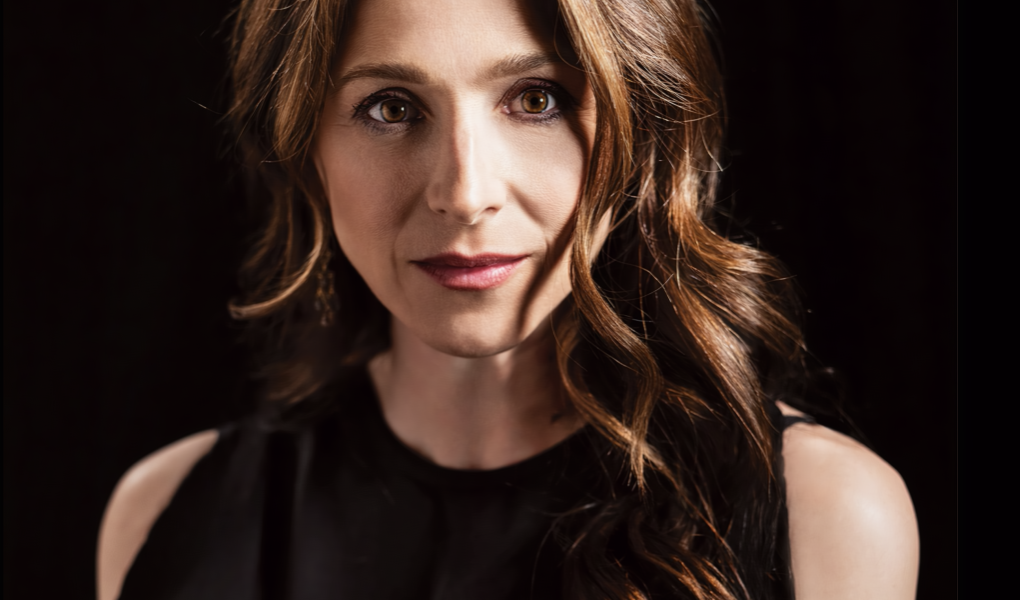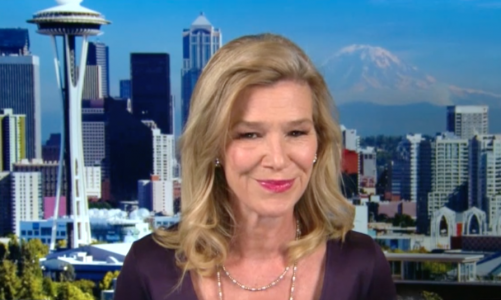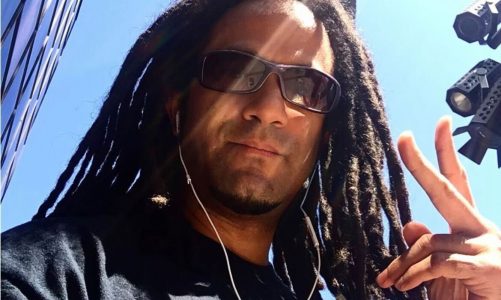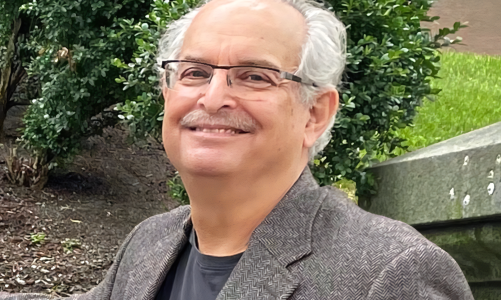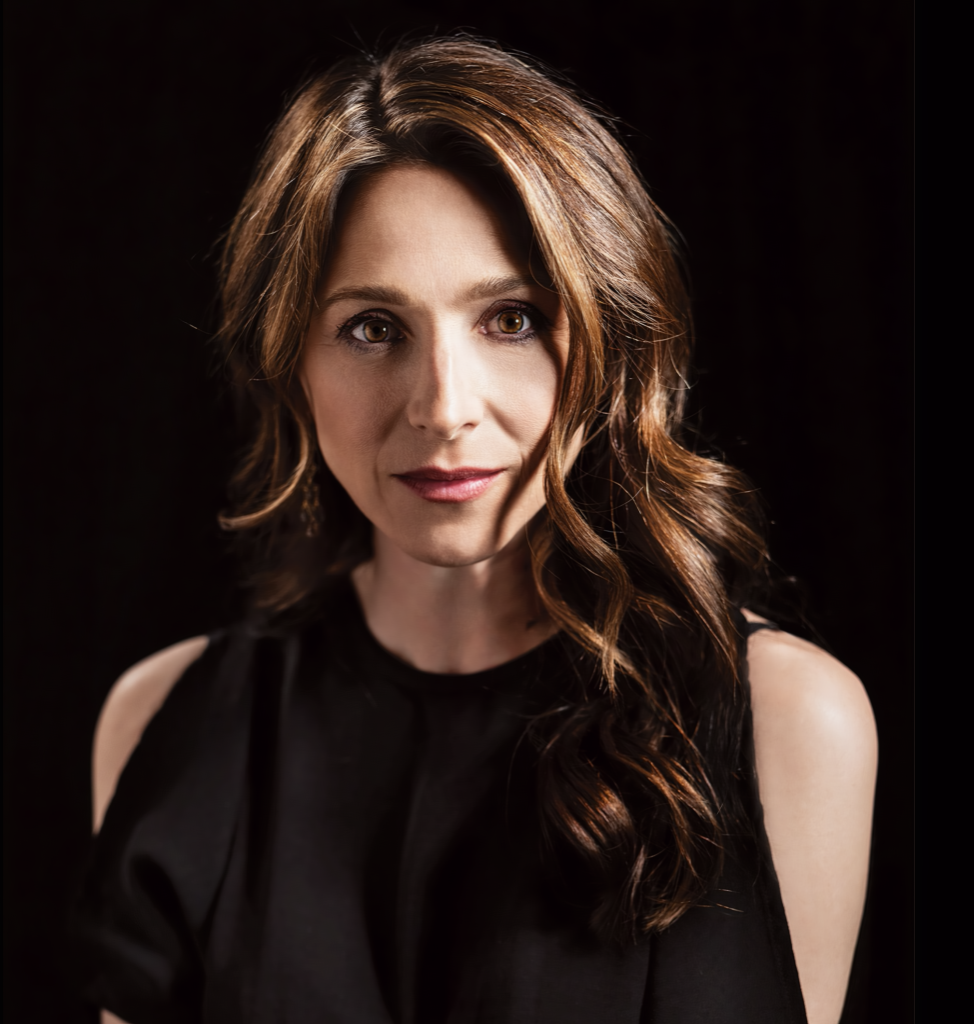
Marin Hinkle is an American actress in theater and television. She earned her Bachelor of Arts in Theatre Arts & English and American Literature from Brown University in ’88 and her Master of Fine Arts Acting from New York University’s Tisch School of the Arts in ’91. Hinkle has starred in award-winning performances including the play Our Town, Broadway play A Thousand Clowns, the sitcom Two and a Half Men, and the recent short film Boomerang. She also serves as the supporting character Rose in the comedy The Marvelous Mrs. Maisel, which captures the journey of Midge Maisel as she navigates 1950s New York City as an aspiring comedian. Her dedication to The Marvelous Mrs. Maisel was recognized when she was nominated for the Primetime Emmy Award for Outstanding Supporting Actress in a Comedy Series in 2019 and 2020.
Autumn Wong: In your decorated acting career of over forty years, what character would you like to revisit?
Marin Hinkle: There was a play on Broadway called A Thousand Clowns written by Herb Gardener. It is about an unemployed television writer fighting to keep custody of his 12-year old nephew amidst the chaos of New York and the fear of conformity. The show was opening in a week and the original actress dropped out. I was cast as this wonderful quirky character named Sandy Markowitz and she was a mess. I was a mess too, at the time.
Essentially, I had done a little bit of Broadway but not a big role up until that point. Also, I was the only female in the play. I stayed up all night for a week memorizing lines. I had not slept and was running on empty. The lead was this wonderful actor named Judd Hirsch. We got to rehearse together like three days before. I did not have time to create the character, so I just had to embrace that I was her. Luckily, I think I had enough of myself connected to Sandy to play her. I was so purely filled with fear that I just had to be me. I would love to see the first week and see the delicacy of that level of fear that had to be tossed aside.
There are many different crossroads that are taken to become an artist. What was the pivotal moment that made you pursue acting?
There was a very important moment during my junior year at Brown University when I was choosing where to study abroad. I really thought I was going to Brown’s program in Dar es Salaam, Tanzania, which is where I was born. Then someone mentioned the O’Neill Theatre Festival program in New York City. Although I loved acting, it was not something I had pursued as a profession. But, I ended up making the jump and going to the theater program.
We were doing those silly exercises: dropping your voice, talking like there is peanut butter in your mouth, and rhyme couplets. I discovered the transformation of acting that particular semester, especially the power of physical transformation. I remember when I was given a piece that stretched my perceived limits as an actress. It was a belly dancer, and I was told “This does not feel like you. It is very sensual, try it.” I thought that I could not do this piece because I can only play myself. But, I found that the true joy of acting is a type of redefinition of self. You get a separation from your own burdens to be involved in the burdens of another character. It was an eye-opening moment because it was my junior year, and it made me think, “Maybe I’ll go to graduate school for acting.”
I brought my parents with me because they needed to be convinced that this was an okay thing to do instead of going to the very place I was born in. My parents had nothing to do with theater and I think they were frightened for me.
That leads to another question about your character Rose on The Marvelous Mrs. Maisel who is the mother of the protagonist Midge Maisel. How do you combine your experience with motherhood in real life with the matriarchal figure that you portray in the show?
The character of Midge Maisel pursues a life that is different from what her mother wants her to do. This is similar to what is going on with my own child. But, you let go and say,” Alright, they need to do their own thing.” The lesson of letting go when a child is making choices different from one’s own has been much more complicated as a parent than I ever knew. Because it is not like I want my son to do something similar to my life. It is just that because I have been around 37 years longer than him, I think that I am able to give him advice. But the truth is, whether it is me, you, my son, or the girl that plays my daughter on the show, Rachel Brosnahan, this is your life. You get to make the mistakes and learning choices that are probably very different from what your parents thought were going to be the successful thing.
We have spoken about the power of family, both on-screen and in real life. How have other mentors influenced your career and life choices?
It is a constant relationship of keeping open to what everybody around us can give us and what we can give them. When someone has been around longer than I have, they can give me insight into how to proceed in my own life. I love asking people, “If you were to do something differently, what would it be?”
A wonderful thing about the arts is that it defies age barriers. People older than you can look up to you, but you can also look up to them. On the show, Caroline Aaron, the actress who plays Midge Maisel’s mother in law, Shirley Maisel, has done it all: theater, TV, and film. She is a mom of two and a bit older than me. I just soak her up and ask her questions like, “How did you deal with the colleges when the kids were looking? How did you deal with a child rebelling? She has all sorts of amazing things that I seek out.
One of the blessings about playing a role that has kids, particularly in this case with The Marvelous Mrs.Maisel, is having this amazing girl [Rachel Brosnahan] in addition to my son in real life. I feel like the gods or something allowed me, if not to have more children in my own practical life than in my theatrical life, to have that. Rachel is the dream of a child to add to my dream of the kid that I have met.
In life, I feel like my girlfriends growing up were so fiercely special. I feel like those women are my mentors, even though I am not like them in a lot of ways, some are incredible athletes, some poets, and some have brains that are so agile with math. Throughout my childhood, Brown, graduate school, and life, I have been able to create a circle of people that I can just reflect with. I love the uniqueness of human nature and the loveliness of friendship, particularly with the women that I have in my life.
In addition to the detailed sets and costumes, the music that accompanies each scene allows the audience to be engrossed in the late 1950s. What significance does music have in your work?
I danced growing up. I did the Nutcracker and many other ballets. In dance, you become so exhausted with the repetition of movement. So once you have rehearsed, you become so in your body that you let the self-consciousness go. The ability to put aside my intellectualism and play another character was much harder for me in acting than in my dancing life.
The show features many long shots, so it feels like a theater piece. Amy Sherman-Palladino, the director of The Marvelous Mrs. Maisel has the music playing and cuts it off right before the dialogue. The theatrical nature and musicality of it take away the self-judgment that would have been getting in the way of playing the character —especially because I don’t feel very similar to my character, Rose. She has so many cool concepts of what she wants in her life and has no problems telling people off, but I am just not that way. A lot of my self-judgment, in the beginning, was thinking that I am not doing the job and I can not be this person. I had to say, as Rose, “Stop judging. She is what she is. She’s confident here,” and Amy adding music to it allows me to be like the dancer and let the self-consciousness go.
The show has survived the pandemic and is now coming to its final season. How do you feel now that The Marvelous Mrs. Maisel is ending?
People are so drawn to acting and the arts because it creates a community. I think about how the stories guide me and my understanding of consciousness, life, and hope. In this particular community, we play one big family: husband, wife, children, and extended family. I felt like I had a second family during the pandemic that I could turn to. All of them.
The pandemic combined with the knowledge that The Marvelous Mrs. Maisel is finishing makes me hold on every day with this ache of respect and deep gratitude for the work. It ties in with the whole concept of coming back and looking at something. In reconvening for the show, we all held on tighter. We all loved each other deeper. We all appreciated the work with a kind of laughter and joy that was even more heightened during the final read-throughs.
*This interview has been edited for length and clarity

